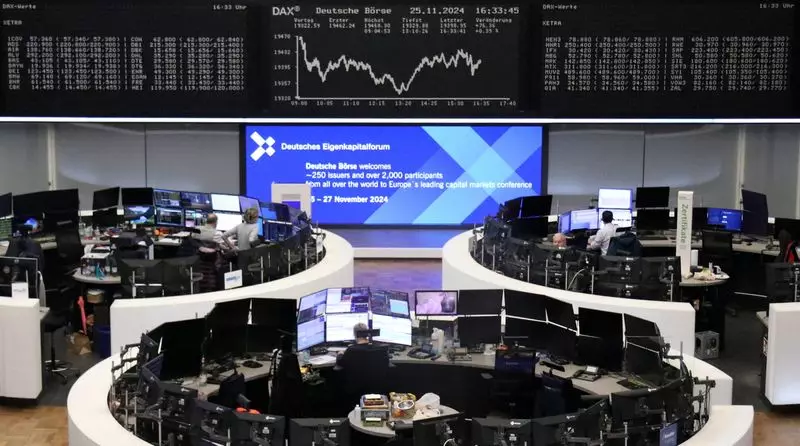European stock markets demonstrated notable resilience on Thursday, clinging to one-month highs despite a politically charged atmosphere in France. Investors appeared unfazed as the national assembly voted out Prime Minister Michel Barnier, a decision anticipated by the market. The pan-European STOXX 600 index saw a modest increase of 0.2% by 0945 GMT, marking the sixth consecutive day of positive movement. France’s CAC 40 index added 0.3%, even reaching a three-week peak earlier in the day, which underscores the market’s ability to focus on growth amidst turmoil.
This political shakeup places France at a critical juncture, with the specter of political instability potentially hindering urgent governance. Analysts have pointed out that Barnier, who is set to resign following this vote, will go down in history as the shortest-serving prime minister in contemporary France. The looming question now is whether France will be able to implement a 2025 budget, as the government appears to grapple with internal challenges. However, the French constitution does provide special provisions that may help avert a scenario akin to a government shutdown as seen in the U.S.
Despite the turmoil, market reactions reflect a broader sense of confidence among investors. Susannah Streeter, head of money and markets at Hargreaves Lansdown, remarked that investor sentiment is largely steady, noting the predictability of the vote as a major contributor to this resilience. The decline in the risk premium associated with French government debt compared to German Bunds indicates that investors were braced for a muted response, leading to a phenomenon often described as “buy on rumors, sell on news.”
The anticipation surrounding President Macron’s potential announcement of a new prime minister adds an element of intrigue to the market dynamics. Simultaneously, the reopening of the Notre-Dame Cathedral set for Saturday serves as a symbolic moment of renewal, a focal point amid shaking political landscapes.
Various sectors within the market have responded differently to the prevailing conditions. Major French banks such as BNP Paribas, Societe Generale, and Credit Agricole recorded gains between 1.7% and 2.8%, illustrating investor confidence in the robustness of the financial sector despite political volatility. Meanwhile, German copper producer Aurubis posted an impressive 14% jump, buoyed by a more encouraging dividend proposal than investors anticipated.
On the contrary, shares of British oil giant Shell experienced a downturn, losing 1% following the announcement of a merger with Norway’s Equinor. In another sector, Safran, the French aerospace and defense firm, faced challenges, with its stock plummeting by 4.9% due to updated financial targets that disappointed investors. However, TotalEnergies rebounded with a 1% increase after RBC upgraded its stock rating, demonstrating varied reactions within the broader market framework.
While political instability poses questions for France’s governance, European stock markets exhibit a remarkable ability to maintain steady performance, signaling resilience and a proactive investor base willing to weather uncertain times. The next few weeks will be critical as the political landscape evolves, and investors will be closely monitoring developments to gauge their impact on market dynamics.

